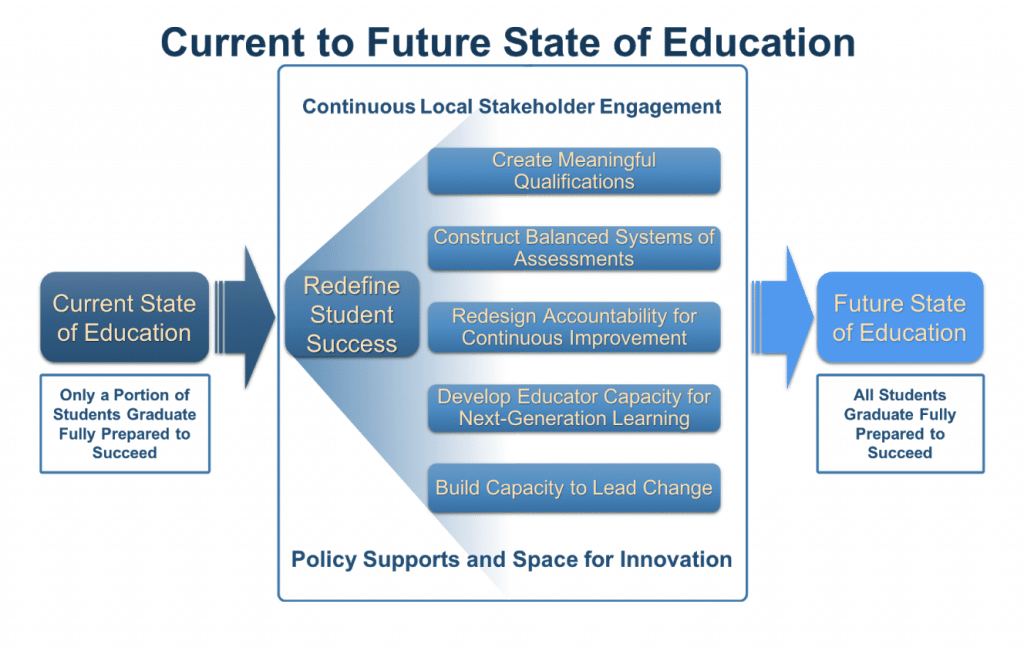iNACOL Publishes Executive Summary on Groundbreaking iNACOL Report Regarding State Policies For Long-Term Transformational Change in K-12 Education
Education Domain Blog
State policymakers know our current K-12 education systems do not prepare all students for success after high school. Unfortunately, to fix this reality, most state policy agendas for education focus on short-term initiatives, programs or marginal changes. This often leads to educational improvements for only a small subset of students. The good news is that greater equity is possible.
With a broader, long-term vision for the future of education, and buy-in from local stakeholders, state policymakers can catalyze systemic transformation in K-12 education that will lead to student-centered learning environments, meeting the needs of every student.
These new learning models, if implemented correctly, can prepare every student for success, equipping all graduates with the needed knowledge, abilities and dispositions to contribute to their communities and to advance society.
Today, iNACOL published an executive summary of Current to Future State: Issues and Action Steps for State Policy to Support Personalized, Competency-Based Learning to highlight the major themes of the groundbreaking report, which was published in January 2018. In the report, iNACOL articulates a bold vision for the future of K-12 education and offers action steps for state policymakers to build a strategy for transformation, enabling personalized, competency-based education.
To support decision-makers and community members with understanding the major issues to tackle to begin the transformation journey, and to appropriately position this new vision in the broader education policy context, this executive summary draws attention to the following six themes:
- Redefining student success with local stakeholder engagement, so everyone knows what students need to know and be able to do upon graduation,
- Creating qualification that are truly meaningful, which represent demonstrated mastery of knowledge and skills,
- Constructing balanced systems of assessments where students can show mastery of what they know and receive timely feedback,
- Redesigning accountability for continuous improvement by empowering stakeholders through balanced measures, dashboards and reciprocal accountability,
- Developing educator capacity for next-generation learning by modernizing development systems and increasing teacher workforce diversity, and
- Building capacity to lead change through personalized preparation systems and enhanced school and system leader diversity.
Learn More:
Download the new Executive Summary here and access other iNACOL issue briefs here:
- State Funding Strategies to Support Education Innovation
- State Policy & K-12 Competency-Based Education
- Innovation Zones: Creating Policy Flexibility for Competency-Based Personalized Learning
- Redesigning Systems of Assessments for Student-Centered Learning
- Redefining Student Success: Profile of a Graduate
- Rethinking State Accountability to Support Personalized, Competency-Based Learning in K-12 Education
- State Strategies to Develop Teacher Capacity for Personalized, Competency-Based Learning
- Course Access: Providing Equitable Access to High-Quality Learning Opportunities
